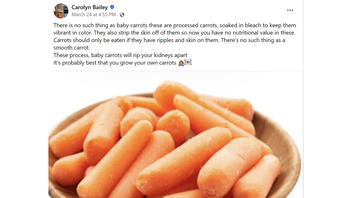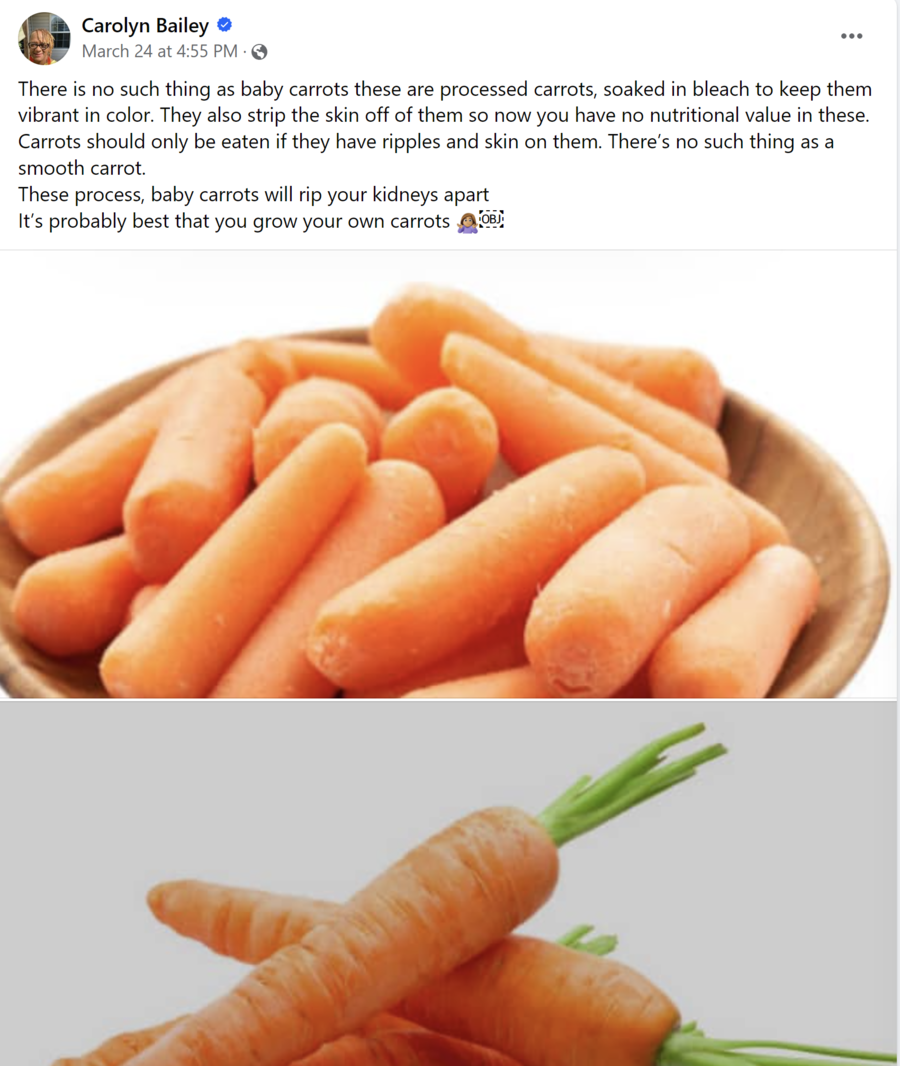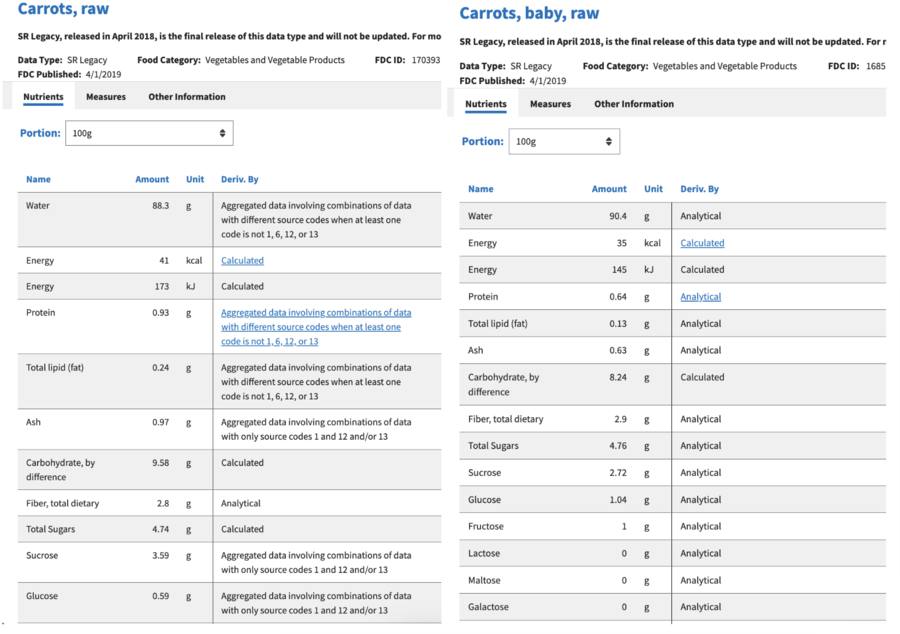
Do baby carrots lack nutritional value and harm the kidneys, as a post on Facebook claimed? No, that's not true: Baby carrots are just regular carrots that have been "cut and peeled," a dietician told Lead Stories. While it is true that baby carrots are lightly rinsed with chlorine, the amount is "typically less than what you have in your tap water," the dietician said. Lead Stories could find no evidence that baby carrots cause harm to the kidneys when eaten. The National Kidney Foundation lists carrots and other root vegetables as a healthy way to add "nutrients to the diet," and the National Institute of Diabetes and Digestive and Kidney Diseases writes that carrots have a healthy level of potassium for patients with a chronic kidney condition.
The claim about the risks of baby carrots originated in a post on Facebook on March 24, 2024 (archived here), with a caption that read:
There is no such thing as baby carrots these are processed carrots, soaked in bleach to keep them vibrant in color. They also strip the skin off of them so now you have no nutritional value in these.
Carrots should only be eaten if they have ripples and skin on them. There's no such thing as a smooth carrot.
These process, baby carrots will rip your kidneys apart
It's probably best that you grow your own carrots 🤷🏽♀️
This is how the post appeared at the time of writing:
(Source: Facebook screenshot taken Tue Mar 26 15:08:00 UTC 2024)
Baby carrots are just regular carrots that have been "cut and peeled," Melissa Prest (archived here), a Chicago-based registered dietician nutritionist and spokesperson for the Academy of Nutrition and Dietetics (archived here), a trade organization, told Lead Stories in an email received on March 28, 2024. Prest noted that though baby carrots are lightly rinsed with chlorine, the amount of chlorine is "typically less than what you have in your tap water," adding that after the chlorine rinse, the baby carrots are washed and rinsed to remove excess chlorine.
Neither baby carrots nor raw carrots are generally considered harmful to the kidneys when eaten. In fact, the National Kidney Foundation (archived here) lists carrots and other root vegetables as a healthy way to add "nutrients to the diet," and the National Institute of Diabetes and Digestive and Kidney Diseases (archived here) writes that carrots generally have a healthy level of potassium for patients with a chronic kidney condition.
"In general, baby carrots are ok for everyone to eat," wrote Prest. She described baby carrots as "a great way to get important vitamins and minerals like vitamin A for your vision and potassium for your heart and blood pressure."
However, some patients with potassium-related conditions should speak with their physician before consuming excess amounts of the root vegetable, Prest added.
As is demonstrated by information published by the U.S. Department of Agriculture (USDA) on April 1, 2019, for both raw carrots (archived here) and raw baby carrots (archived here), the two vegetables do have slight differences in nutritional value. Still, it is incorrect to say that baby carrots have "no nutritional value," as the post on Facebook claims. Nutritional information from the USDA for the two types of carrots can be seen here :
(Source: USDA screenshot taken Fri Mar 29 16:08:00 UTC 2024)
The Facebook page (archived here) where the claim about baby carrots' supposed dangers appeared includes links to the account holder's Amazon account (archived here), which markets nut milk and various home supplies. The Facebook account holder, Carolyn Bailey, a self-described "digital creator," receives commissions for those sales, according to the linked Amazon page. The name "Moniques room Naturopathic boutique" appears in the title of Bailey's Facebook page.
Additional Lead Stories fact checks of claims that mention carrots can be found here.



















